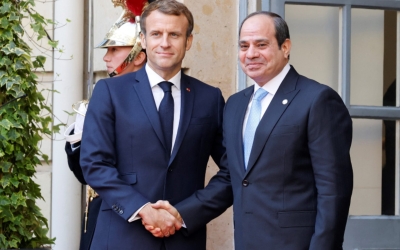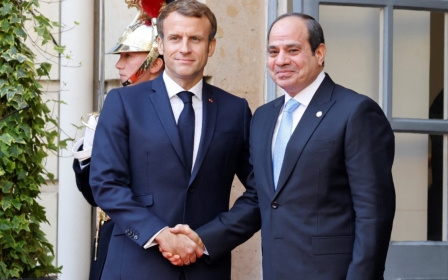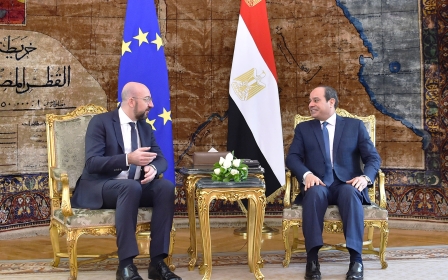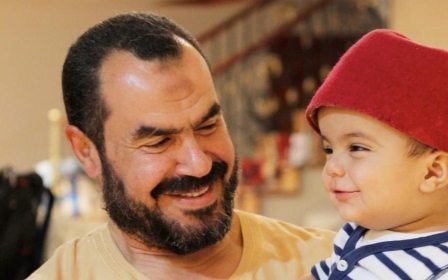Egypt takes lead role on global counter-terrorism network despite rights fears
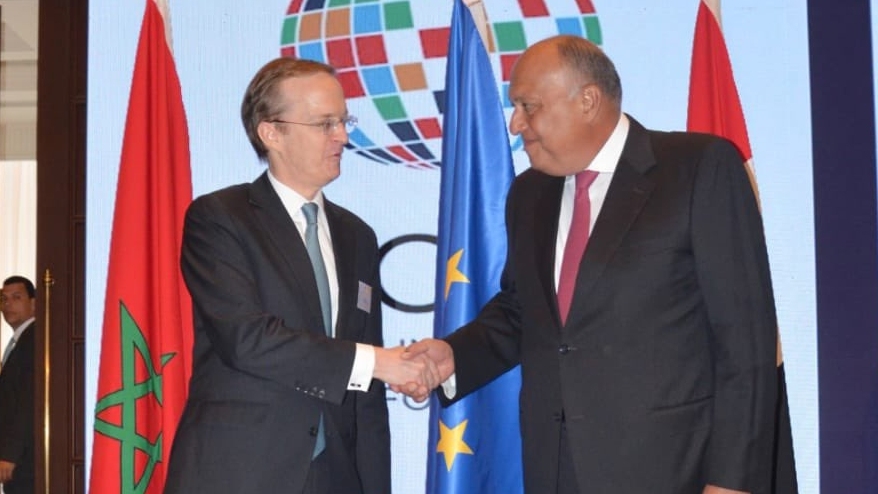
Egypt has assumed the co-leadership of an influential global body shaping counter-terrorism policies despite condemnation of its appointment over Cairo’s "abuse of international counterterrorism norms".
Egypt formally took over as a co-chair, with the European Union, of the Global Counterterrorism Forum (GCTF) at a meeting of the organisation’s coordinating committee in the Egyptian capital on Thursday.
“We are honoured to be hosting the first GCTF Coordinating Committee meeting co-chaired with the European Union, in which all parties underscored their collective commitment to continue fighting this global scourge,” Egyptian Foreign Minister Sameh Shoukry said in opening remarks.
Charles Fries, the deputy secretary general of the European External Action Service, the EU’s diplomatic body, told the meeting that "tackling the scourge of terrorism" in Africa would be a “strategic priority” of the EU’s joint tenure with Egypt, which runs until 2025.
“The EU is committed to assuring the GCTF is dynamic, action-oriented, and remains fit-for-purpose,” said Fries.
New MEE newsletter: Jerusalem Dispatch
Sign up to get the latest insights and analysis on Israel-Palestine, alongside Turkey Unpacked and other MEE newsletters
But in a letter sent to EU foreign policy chief Josep Borrell last month, human rights and civil society organisations, including Amnesty International, Human Rights Watch, and the Cairo Institute for Human Rights Studies highlighted concerns about Egypt's record of human rights abuses linked to counter-terrorism policies under President Abdul Fattah el-Sisi.
They said Egypt had "instrumentalised counterterrorism to clamp down on human rights", and said the EU risked undermining its own commitment to upholding human rights by associating with Sisi's government.
"We remain concerned that Egypt will seek to use its influential position within the GCTF to evade criticism for its extensively documented human rights violations and to advance its efforts to weaken human rights protections in counterterrorism policies at the multilateral level," the letter said.
Middle East Eye first reported in January 2022 that EU officials had approved a joint bid with Egypt to lead the GCTF.
According to papers seen by MEE, the bid was approved one day after a Cairo-based human rights group, the Arabic Network for Human Rights Information (ANHRI), said it had been forced to close because of government persecution.
Egyptian human rights campaigners told MEE the joint bid suggested that some EU institutions were prepared to turn a blind eye to human rights abuses linked to counter-terrorism laws, and accused the EU of working with Sisi to improve his image.
A group of human rights organisations, including those who signed last month's letter, subsequently said in a joint statement they were “appalled” by the EU’s decision to partner with Egypt, and called on the EU to withdraw from the bid.
The statement highlighted Egypt’s “alarming record of severe human rights violations, often ‘justified’ in the name of terrorism” as well as “a systemic problem in the abuse and misuse of counter-terrorism laws and practices”.
Egypt and the EU were nonetheless confirmed by the GCTF as co-chairs in April 2022, with the EU replacing Canada as the other co-chair last September.
Egypt takes over from Morocco, which had been a co-chair since 2015.
In their letter to Borrell last month, human rights organisations called on EU officials to "take steps to recenter human rights within [the GCTF's] work on global counterterrorism policies".
They also called on EU officials to raise concerns with Egyptian officials about the "misuse of counterterrorism legislation to crack down on independent civil society".
Amr Magdi, a senior researcher in HRW’s Middle East and North Africa Division, told MEE: “We see no real mention of human rights or the suffocation of civil society in Egypt under Sisi’s government.
"We see no condemnation of human rights violations by security forces in Egypt under the name of fighting terrorism, including widespread, well-documented enforced disappearances, torture, and extrajudicial killings.
"European officials usually say that these kinds of forums allow them to engage with Egyptian officials on several topics including human rights, but judging from the outcome, these forums actually give the Egyptian government excellent whitewashing opportunities while abuses continue unabated.”
The GCTF meeting in Cairo is taking place in the same week that 51 rights groups called on Egyptian authorities to release Salah Soltan, the arbitrarily detained father of Mohamed Soltan, an American citizen who spent 643 days in prison in Egypt after being arrested in July 2013.
The GCTF is an international organisation that was established in New York in September 2011 and works closely with the United Nations to promote the global body’s own counter-terrorism strategy.
Its 30 members also include Russia, China, Saudi Arabia, the United Arab Emirates, Qatar, Jordan, Algeria, Nigeria, Pakistan, Indonesia, and many individual European states.
Middle East Eye delivers independent and unrivalled coverage and analysis of the Middle East, North Africa and beyond. To learn more about republishing this content and the associated fees, please fill out this form. More about MEE can be found here.


